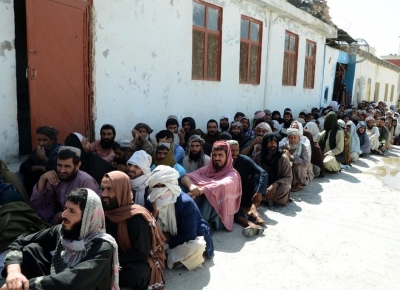Afghanistan experiences worst humanitarian crisis on Earth: Red Cross
By IANS | Updated: June 17, 2022 09:20 IST2022-06-17T09:06:03+5:302022-06-17T09:20:07+5:30
Kabul, June 17 The International Federation of Red Cross and Red Crescent Societies (IFRC) has warned that Afghanistan ...

Afghanistan experiences worst humanitarian crisis on Earth: Red Cross
Kabul, June 17 The International Federation of Red Cross and Red Crescent Societies (IFRC) has warned that Afghanistan was currently experiencing the "worst humanitarian crisis on Earth", adding that it needed about $82 million to further scale up response in the war-torn nation.
In its latest update on Thursday, the Red Cross said that more than half of Afghanistan's total population required immediate humanitarian assistance.
"The country is experiencing the compounding effects of decades of conflict, severe drought, food insecurity, climate-related disasters, displacement and gaps in health services," it said.
The IFRC suggested that Afghanistan is in the midst of the biggest and the "worst humanitarian crisis on Earth", with about 20 million people facing food insecurity.
It said that intense summer heat and a weak spring rainy season have effectively spelt doom for a meaningful harvest in the country.
Amidst mounting poverty, 70 per cent of households are unable to meet basic food and non-food needs, with particularly devastating effects for homes headed by widows, the elderly, people with disabilities, and children.
An estimated 3 million children are at risk of malnutrition and susceptible to diseases such as acute watery diarrhoea and measles due to weakened immunity.
Thousands of people have resorted to begging in the streets, with prices of essential items soaring in the face of declining remittances, a crumbling economy and rising poverty.
Mohammad Nabi Burhan, Secretary General of Afghan Red Crescent, said: "This is one of the worst humanitarian crises I have seen in Afghanistan, in more than 30 years as a humanitarian aid worker. It is horrifying to see the extent of hunger and resurgence of poverty that we have fought so hard to eradicate."
Disclaimer: This post has been auto-published from an agency feed without any modifications to the text and has not been reviewed by an editor
Open in app